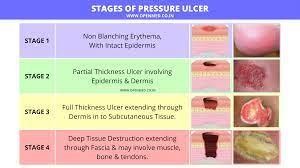The nurse is aware that a common cause of under delegation in client care is:
giving too much responsibility to the assistive personnel.
a high degree of trust in delegates.
a need for perfectionism and control
that nurses usually have the time to do things themselves
The Correct Answer is C
Choice A rationale: Under-delegation is not related to giving too much responsibility to assistive personnel; it is about appropriate delegation based on the nurse's assessment of the situation.
Choice B rationale: Trust in delegates is essential, and under-delegation is more likely related to a lack of trust or confidence in delegation.
Choice C rationale: Under-delegation can occur due to a nurse's need for perfectionism and control, leading to a reluctance to delegate tasks to others.
Choice D rationale: Nurses often have heavy workloads, and under-delegation may be a result of feeling there is not enough time to delegate effectively.
Nursing Test Bank
Naxlex Comprehensive Predictor Exams
Related Questions
Correct Answer is ["B","D","E"]
Explanation
Choice A rationale: Hypernatremia involves elevated sodium levels, so encouraging potassium-rich foods is not directly related to addressing hypernatremia.
Choice B rationale: Restricting sodium in the diet is appropriate to help manage and reduce hypernatremia. This can prevent further complications of hypernatremia, such as dehydration, confusion, seizures, and coma.
Choice C rationale: This is not an appropriate intervention for hypernatremia, as water intake can help dilute the sodium levels and restore the fluid balance in the body.
Decreasing water intake can worsen the hypernatremia and cause dehydration. Choice D rationale: This is an appropriate intervention for hypernatremia, as high sodium levels can affect the fluid balance and blood pressure in the body. Monitoring
vital signs can help detect any changes or abnormalities that may indicate worsening of the condition or need for further treatment.
Choice E rationale: Monitoring intake and output helps assess fluid balance and response to interventions for hypernatremia.
Correct Answer is {"dropdown-group-1":"B"}
Explanation
Choice A rationale: Stage I pressure ulcers involve intact skin with non-blanchable redness, and there is no mention of intact skin in the scenario.
Choice B rationale: Stage II pressure ulcers involve partial thickness skin loss, typically presenting as an abrasion, blister, or shallow crater, which aligns with the description provided.
Choice C rationale: Stage III pressure ulcers involve full-thickness skin loss with damage to or necrosis of subcutaneous tissue but do not match the described scenario.
Choice D rationale: Stage IV pressure ulcers involve full-thickness skin loss with extensive destruction, tissue necrosis, or damage to muscle, bone, or supporting structures, which does not align with the description of partial thickness skin loss in the scenario.
 |
Whether you are a student looking to ace your exams or a practicing nurse seeking to enhance your expertise , our nursing education contents will empower you with the confidence and competence to make a difference in the lives of patients and become a respected leader in the healthcare field.
Visit Naxlex, invest in your future and unlock endless possibilities with our unparalleled nursing education contents today
Report Wrong Answer on the Current Question
Do you disagree with the answer? If yes, what is your expected answer? Explain.
Kindly be descriptive with the issue you are facing.
